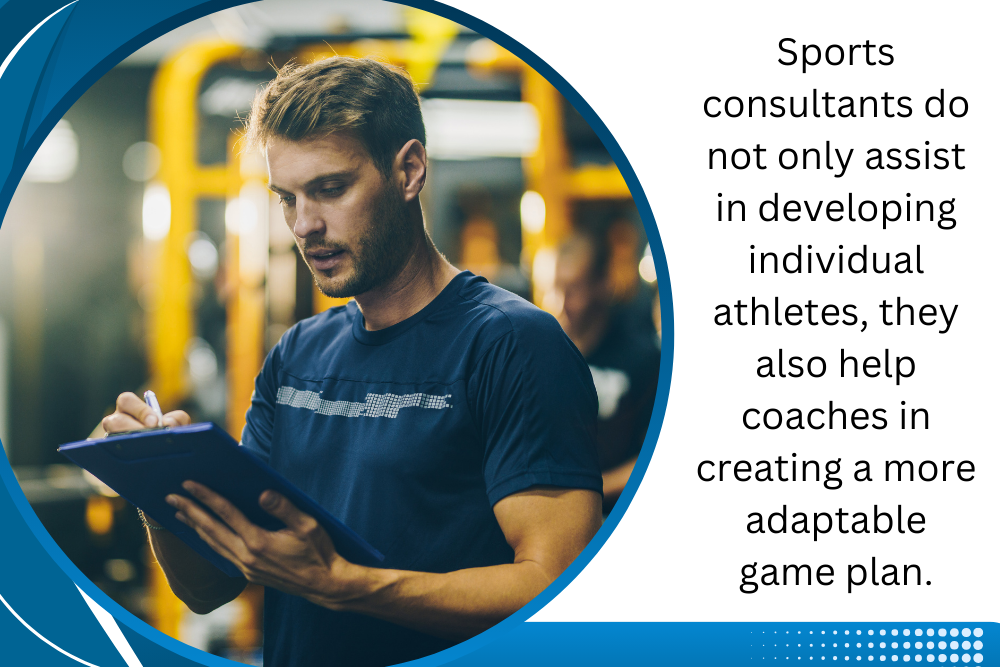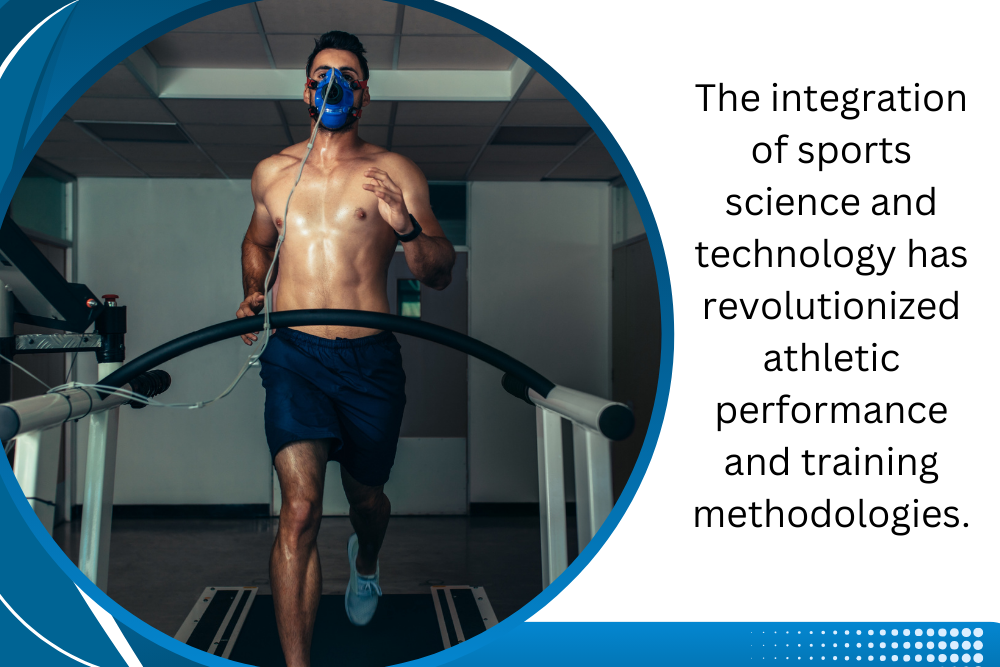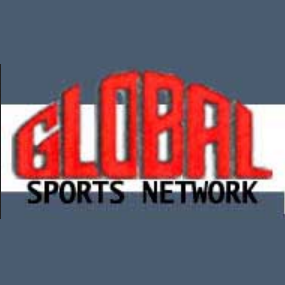Top 10 Sports Consulting Firms in Singapore Assisting in Sports Management Using In-Depth Industry Knowledge
In the vibrant sports landscape of Singapore, sports consultants play a pivotal role in elevating athletic excellence. With a focus on holistic development, these consultants offer specialized expertise in coaching, sports science, and performance analytics. Singaporean sports teams, ranging from grassroots to professional levels, increasingly recognize the value of strategic guidance.
By tailoring solutions to address specific challenges, sports consultants contribute to skill enhancement, injury prevention, and team cohesion. Their impact transcends the playing field, fostering a culture of continuous improvement and resilience. As Singapore continues to nurture its sporting prowess and make its mark in the world, sports consulting emerges as an indispensable tool in the career of any professional athlete and the nation's journey to athletic success.
Check out our list of sports consultancy agencies to find a consultant that could help your organisation foster a culture of continuous improvement and empower your athletes to develop and rise to new levels.
How a Great Sports Consultant Can Help Athletes and Sports Teams Perform Better and Become More Competitive
Sports consultants – seasoned professionals with a deep understanding of the sports industry – serve as invaluable assets, helping sports organizations achieve excellence and prominence in their field. Initially sought only to advise athletes, their role has evolved significantly, mirroring the dynamic nature of professional sports.
No longer confined to singular issues, sports consultants in Singapore now engage in comprehensive strategies encompassing player development, coaching methodologies, sports science, sports marketing, and team culture. The evolution of the roles of sports consultants aligns with the complexity of the modern sports industry, embracing data analytics, advanced technologies, market research, and interdisciplinary collaboration.
The importance of sports consultants lies in their ability to optimize team performance systematically. By integrating expertise across various domains, they offer tailored solutions, strategic planning, and a holistic approach, ensuring teams achieve peak performance and remain competitive in the demanding and ever-evolving landscape of professional sports.

Scope of Sports Consulting
In the dynamic and highly competitive realm of sports, the role of sports consultants and consulting firms is instrumental in shaping the trajectory of athletes and teams toward success. These professionals bring a diverse skill set to the table, addressing key areas that are pivotal for both individual and collective performance.
Player development and coaching strategies
Helping players develop and improving coaching strategies are the most important jobs of sports consultants. These professionals work closely with athletes and the coaching staff to formulate personalized development plans. Through comprehensive assessments of individual strengths and weaknesses, consultants design training programs using available facilities to enhance the players’ skills and address areas requiring improvement. This individualized approach not only maximizes the potential of each athlete but also assists coaches in refining overarching team strategies, creating a more dynamic and adaptable game plan.
Sports science and performance analytics
The integration of sports science and performance analytics is a defining characteristic of modern sports consultancy. Leveraging cutting-edge technologies and scientific principles, consultants advise clients based on the collected data of each athlete’s physical and physiological attributes. A common practice in the industry today is to use wearable devices and performance analytics software that offer insights into key performance metrics, enabling evidence-based decision-making in areas such as training, nutrition, and recovery. This data-driven approach provides a precise understanding of an athlete's capabilities, allowing for targeted improvements and reducing the risk of overtraining or injury.
Injury prevention and rehabilitation
Injury prevention and rehabilitation are paramount concerns addressed in sports consulting to ensure athletes maintain peak physical condition. Working closely with medical professionals, consultants design comprehensive injury prevention programs. These programs encompass proper training techniques, recovery protocols, and biomechanical assessments, all aimed at minimizing the risk of injuries. In the unfortunate event of injuries, sports consultants contribute to effective rehabilitation plans, creating guides for athletes to follow to improve and speed up the recovery process. Their expertise not only minimizes downtime but also ensures a seamless return to training, often with enhanced resilience.
Team culture and leadership development
Team culture and leadership development represent the intangible yet critical aspects of sports consultancy. Sports consulting firms collaborate with coaches and the team management to foster a positive and inclusive team culture. Through targeted workshops and interventions, they address communication, collaboration, and motivation, creating an environment conducive to success. Conducting leadership development programs is another strategy that is fundamental to cultivating strong and effective leaders within the team. These leaders not only inspire teammates but also navigate challenges, contributing to a resilient and high-performing team.
Moreover, sports consultants play a crucial role in aligning team members towards a shared vision, instilling a sense of cohesion and collective responsibility. The development of leadership skills ensures that individuals within the team can effectively guide and support one another, fostering an environment conducive to sustained success.

Impact of Sports Consultants
In any kind of sport, the impact of sports consultants extends beyond mere guidance, influencing measurable improvements in performance, successful outcomes, and overall improved team dynamics.
Success stories of sports teams benefiting from consulting services
Several success stories underscore the profound impact of sports consultants on teams across different disciplines. Take, for instance, how the previously-unknown Golden State Warriors became successful in the NBA. The Warriors underwent a transformative phase with the introduction of sports consultancy principles. Their consultant not only worked on player development and coaching strategies but also integrated cutting-edge sports science and performance analytics. The result was a team that not only dominated on the court but also set records for their innovative playing style and strategic approach, and even launching the superstar career of Steph Curry.
Another notable example is the turnaround of the English Premier League football club, Leicester City. In the 2015-2016 season, Leicester City, against all odds, clinched the league title. The club attributed a significant portion of its success to the implementation of sports consultancy services. By focusing on developing each athlete, adopting data-driven strategies, and fostering a positive team culture, the consultants played a crucial role in transforming Leicester City from underdogs to champions.
Analysing measurable improvements in performance and outcomes
In Singapore, sports consultants play a crucial role by meticulously analysing measurable improvements in performance and outcomes for sports teams. Through data-driven strategies and cutting-edge analytics, these consultants contribute to optimizing training regimens, enhancing player performance, and improving overall team dynamics. The impact is tangible, as evidenced by measurable advancements in player metrics and team success, showcasing the invaluable role of sports consultancy in elevating the performance standards of Singaporean sports teams.
Challenges faced by teams without effective sports consulting
By implementing effective coaching strategies and fostering a positive team culture, sports consultants contribute to a cohesive and high-performing unit. This can be seen in instances where teams consistently outperform expectations, showcasing the direct impact of sports consultancy on overall team success.
Conversely, teams without advice from a sports consultant may face significant challenges. In an era where margins for error are slim, failure to adapt to modern methodologies can result in stagnation or decline. Teams may struggle with poor performance analysis, outdated training approaches, inefficient coaching strategies, and a lack of data-driven decision-making. The absence of injury prevention programs and rehabilitation expertise can lead to increased downtime for athletes and compromised team performance.
Furthermore, teams without effective sports consulting may struggle to foster a positive team culture and develop strong leadership. This lack of cohesion and direction can impact player morale, communication, and overall team dynamics, hindering the ability to overcome challenges and achieve sustained success.

Sports Science and Technology Integration
This synergy between sports science and technology has not only enhanced the precision of performance analysis but has also opened up new frontiers in training methodologies, offering athletes a holistic approach to reach their peak potential.
Impact of technology on sports performance
Technology touches various aspects of sports, including training, competition, and athlete well-being. One notable advancement is the use of data analytics and performance-tracking technologies. Athletes now have access to real-time data on their physical metrics, such as heart rate, speed, and distance covered. Coaches leverage this information to tailor training regimens, optimize performance, and prevent injuries. The depth and immediacy of these insights empower athletes to make informed decisions, fostering a more proactive approach to their own development.
Role of wearable technology
Wearable technology plays a pivotal role in this integration, offering athletes a direct link to their physiological data. Devices such as fitness trackers, smartwatches, and GPS-enabled wearables have become commonplace in sports. These devices monitor key metrics during training sessions and competitions, providing a wealth of data for analysis. The information collected helps in fine-tuning training plans, managing workloads, and gauging an athlete's readiness for peak performance. The seamless integration of wearables into the training routine not only enhances the precision of performance optimization but also instills a sense of personal accountability among athletes.
Virtual reality and simulation in training
Virtual reality (VR) and simulation technologies have also emerged as transformative tools in sports training. VR allows athletes to immerse themselves in simulated environments that replicate the conditions of their sport. This immersive experience is particularly valuable for mental preparation, allowing athletes to visualize and rehearse game scenarios, refine strategies, and enhance decision-making skills. VR is increasingly being utilized in sports like football, basketball, and golf to create realistic training scenarios that closely mimic the challenges faced during actual competition.
Simulation technologies extend beyond VR to include augmented reality (AR) and computer-based simulations. These tools enable athletes to practice and refine their techniques in a controlled, virtual environment. For example, in sports like golf or tennis, athletes can use simulators to replicate the feel of real courses or courts, allowing for targeted practice and skill development. Such simulations provide a safe space for athletes to experiment with new strategies, hone their skills, and enhance muscle memory.
Technology and injury prevention
The integration of sports science and technology is not only confined to training but also extends to injury prevention and rehabilitation. Advanced imaging technologies, such as MRI and CT scans, enable precise diagnosis of injuries, facilitating more accurate treatment plans. Additionally, technologies like cryotherapy chambers, hyperbaric chambers, and advanced physiotherapy equipment aid in the recovery process, minimizing downtime and ensuring athletes return to play in optimal condition.

Qualities of Effective Sports Consultants
Effective sports consulting services are distinguished by a unique blend of qualities that transcend mere expertise, encompassing adaptability, communication skills, and a proven track record with previous clients.
Expertise in specific areas of sports management and performance
Expertise in specific areas of sports management and performance is a fundamental quality that sets effective sports consultants apart. Mastery of their chosen domains, whether it be player development, coaching strategies, sports science, or injury prevention, is essential. This expertise not only instils confidence in the consultant's abilities but also enables them to provide tailored guidance based on a deep understanding of the intricate nuances and legal issues within their specialized areas. The ability to draw upon this wealth of knowledge is critical for crafting effective strategies that address the unique challenges faced by athletes and teams.
Adaptability to different team cultures and dynamics
Adaptability to different team cultures and dynamics is a hallmark of successful sports consultants. The sports industry is diverse, and teams vary in terms of culture, communication styles, and overall dynamics. The ability to understand and adapt to these differences is crucial for effective consultancy. Whether working with professional or college teams, an Olympic squad, or individual athletes, consultants must navigate and embrace the distinct characteristics of each setting. This adaptability ensures that their strategies align seamlessly with the unique challenges and goals of each team, fostering a positive and productive working relationship.
Communication skills and the ability to work collaboratively
Communication skills are paramount for a sports consultant to convey his or her expertise effectively. The ability to articulate complex concepts in a clear and understandable manner is essential for building rapport with athletes, coaches, and other stakeholders. Effective consultants not only possess a deep understanding of their specialized knowledge but can also communicate it in a way that resonates with their audience.
Equally crucial is the ability to work collaboratively within a team. Sports are inherently team-oriented, and effective consultants understand the importance of collaboration. They work seamlessly with coaches, medical staff, and other stakeholders to implement holistic strategies. The collaborative approach enhances the overall effectiveness of the consultant's contributions and promotes a cohesive team environment.
Track record of success with previous clients
A career with a track record of success with previous clients is a tangible indicator of an effective sports consultant. Past achievements and positive outcomes serve as a testament to the consultant's ability to translate knowledge into measurable improvements. Success stories from previous engagements not only demonstrate expertise but also provide evidence of adaptability and effective communication in real-world scenarios. A proven track record instills confidence in current clients, reinforcing the consultant's credibility and demonstrating their capacity to bring about positive change.

Finding the Right Sports Consultant
In the quest for success, sports teams often turn to sports consultants to unlock their full potential and overcome challenges. However, finding the right sports consultant is a crucial step that requires careful consideration and a strategic approach.
Assessing the specific needs of the sports team
In whatever sport, the first step in hiring the right consultant is identifying areas of improvement or challenges. A thorough internal assessment helps pinpoint specific aspects of performance or team dynamics that need enhancement. Whether it's player development, coaching strategies, injury prevention, or overall team culture, a clear understanding of these areas forms the foundation for finding a consultant with the right expertise.
Defining clear goals and objectives is the next crucial step. Teams should articulate what they aim to achieve with the help of a sports consultant. Whether it's improving win-loss records, mapping the professional career of a natural-born athlete, or fostering a positive team culture, having well-defined objectives provides a roadmap for selecting a consultant whose expertise aligns with the team's aspirations.
Researching potential consultants
Reviewing credentials and expertise is a non-negotiable aspect of the selection process. Teams should thoroughly examine a consultant's background, education, and experience in relevant areas such as sports management, coaching, or sports science. Credentials provide insight into the consultant's qualifications and proficiency, guiding teams to make informed decisions.
Analysing previous client testimonials and success stories offers valuable insights into a consultant's track record. Teams should seek feedback from other organizations or teams that have worked with the consultant. Testimonials and success stories can provide a glimpse into the consultant's ability to translate knowledge into tangible improvements, fostering confidence in their capabilities.
Conducting interviews and consultations
Exploring the consultant's approach and methodology is critical for assessing compatibility. Each consultant may have a unique approach to problem-solving and performance enhancement. Teams should align with a consultant whose methodology resonates with their organizational culture and goals, ensuring a harmonious working relationship.
Ensuring compatibility with the team's values and vision is equally crucial. A sports consultant should align with the core values and long-term vision of the team. Shared values contribute to a cohesive working relationship and increase the likelihood of successful collaboration.
Evaluating cost and return on investment
Establishing a budget for consulting services is a practical consideration. Teams should define a budget that aligns with their financial resources while ensuring that the selected consultant offers value for the investment. A transparent discussion about fees, services, and potential additional costs is essential for avoiding misunderstandings later on.
Measuring the potential impact on team performance is the ultimate yardstick for selecting the right sports consultant. Teams should seek clarity on how the consultant plans to measure success and the key performance indicators (KPIs) that will be used. This ensures that both parties have a shared understanding of the expected outcomes and the consultant's role in achieving them.
Sports consultants navigate the complex landscape of the sports world, offering insights into training regimens, talent development, and overall team dynamics. If you’re a sports team or organisation looking for a sports consultant that would contribute to your journey to peak performance and excellence, take a look at our list of the best sports consultants in Singapore today.
Latest Becozon Offer
Boost your business with these exclusive deals by our esteemed Becozon partners
Looking for a CRM software?
Get customisable, cloud-based sales and operations CRM software suitable for any industry. Contact us for a demo today!
Contact Us




